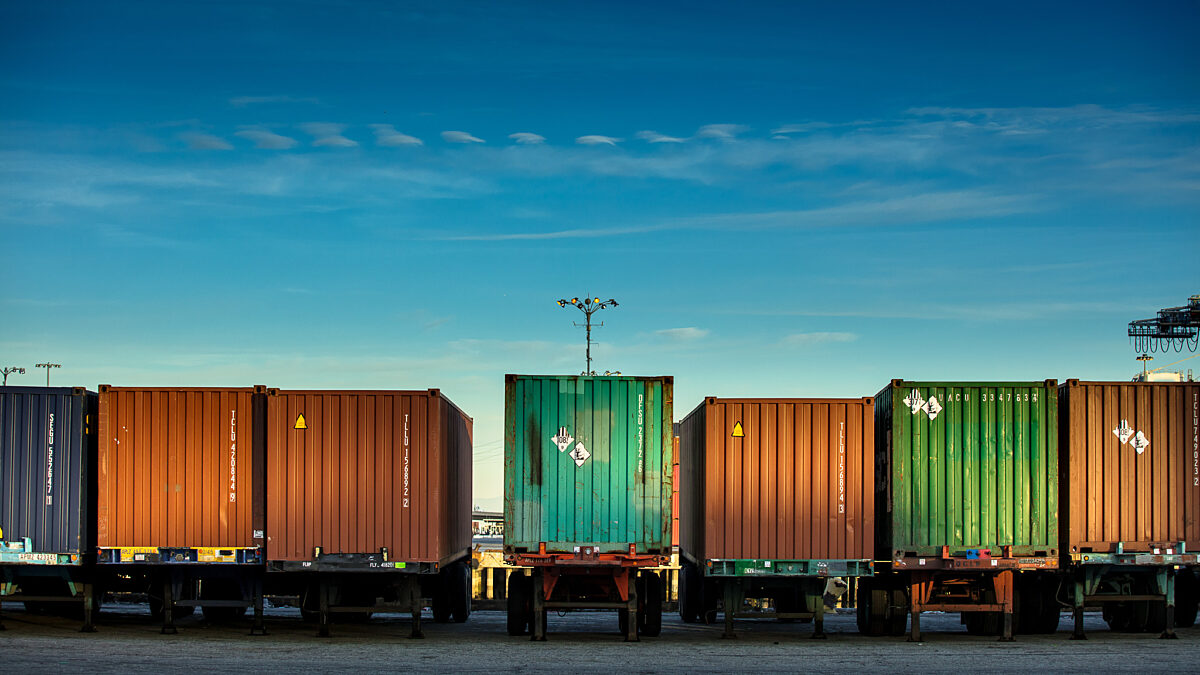Hanging On Through Supply Chain Challenges
Zippy Duvall
President

photo credit: Getty
Zippy Duvall
President
Like many Americans, I’ve noticed fewer options and higher prices at the grocery store and watched gas prices climb over the past few months. As I continue traveling around the country, everywhere I visit, I’m hearing from farmers and ranchers that can’t get needed supplies like fertilizer, crop protectants, parts for equipment, and even some seeds for next year’s planting season. It’s helpful to review the analysis by American Farm Bureau economists to understand what is driving all this.
While high demand and supply chain disruptions impact price and availability in some areas, it’s essential to know that American agriculture remains strong. Farmers are still farming and working to deliver the food, fuel, and fiber our country depends on. Still, there’s no denying the challenges that remain before us.
When you break it down, the cost of the meal is less than $6 per person, but for families who need to make every penny count, a 14% increase in a single year is hard to swallow.
Last week, the American Farm Bureau published our annual Thanksgiving Cost Survey, which showed how these supply chain disruptions and inflation have impacted the cost of this week’s Thanksgiving meal. With the help of volunteer shoppers in all 50 states, we found that the cost for a traditional Thanksgiving dinner will be up 14% this year. The price for a 12-item Thanksgiving basket for 10 people came to $53.31, the highest price ever recorded in the 36-year history of the survey. When you break it down, the cost of the meal is less than $6 per person, but for families who need to make every penny count, a 14% increase in a single year is hard to swallow.
Although Americans are paying more for their food on average, most farmers and ranchers haven’t seen these gains on the farm. Only eight cents of each dollar spent on food goes to cover production costs on the farm. The remaining 92 cents covers food processing, packaging, transportation, distribution, food service preparation, and marketing costs. Some farmers have received higher prices for their products, but those gains are often eaten up with increased costs to grow crops and raise livestock.
Earlier this year, Farm Bureau identified several things the Biden Administration could do to help alleviate supply chain challenges in both the short and long term. Based on the policies created by our members, we made recommendations that would help address the problems we are experiencing today to secure our supply chain for the future. Our recommendations spurred a series of conversations with multiple federal agencies and inspired additional communications from other agricultural organizations.
Our suggestions included increasing coordination with agricultural haulers to provide greater flexibility to deliver essential products, promoting greater freight-rail competition, addressing the farm labor crisis across the country and expanding global markets for American agricultural products. We also asked the administration to address the growing number of empty shipping containers departing U.S. ports. Typically, these containers would be filled with ag products destined for international markets, but because of shortages in consumer goods, shipping companies can make more money by rapidly sending these empty containers back to ports around the world to be filled with more goods coming into the U.S.
Solving the challenges in our supply chain and the economy as we continue to recover from the pandemic will not be easy. We stand ready to help in any way we can to ensure a return to the elusive “new normal.” We are committed to working with members of Congress, the administration, and our industry partners to find and implement solutions to keep costs down, increase the availability of products, and ensure Americans can get back to focusing on life beyond COVID. Through it all, there is one message I hope breaks through to every American, no matter your profession, hometown or political persuasion: farmers and ranchers remain dedicated every single day to our mission of delivering the food, fiber and fuel needed to get America back on track.
Zippy Duvall
President
Vincent “Zippy” Duvall, a poultry, cattle and hay producer from Greene County, Georgia, is the 12th president of the American Farm Bureau Federation.
Top Issues
VIEW ALL